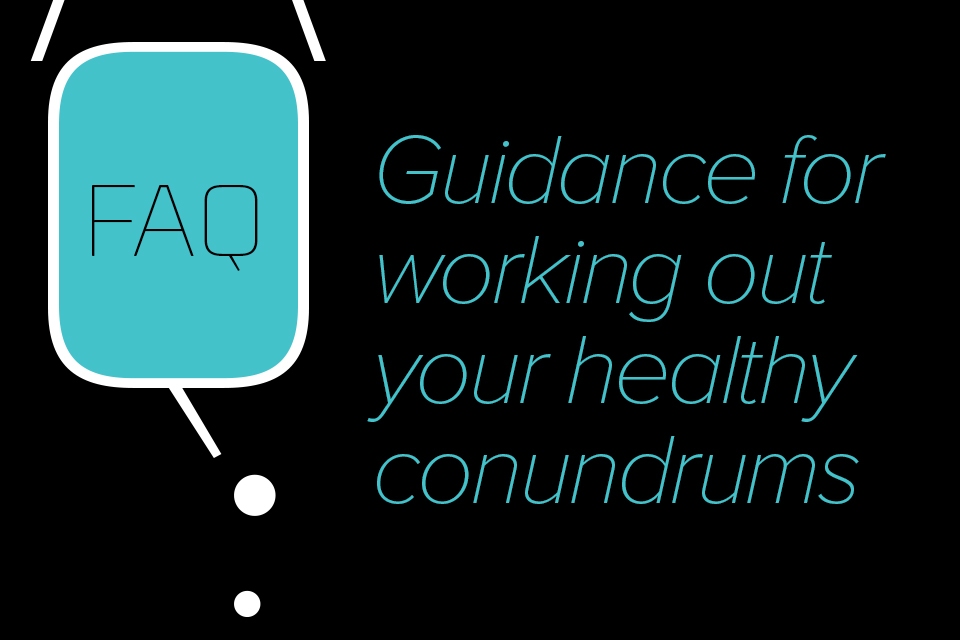FAQ – August 2015

Q. Why do I run more slowly in the heat?
A. For every 5-degree rise in temperature above 60 degrees Fahrenheit, your pace can slow by as much as 20 to 30 seconds per mile. Don’t fight it—just slow down. You may be running more slowly because your body has yet to adjust to the heat. Try to stay on your regular running schedule.
Humans are professional environment adapters, so chances are you’ll soon start to feel less sluggish.
Running in the early morning or right before dusk is one way to help improve your summer stride. So can using common sense. Stay hydrated, don’t wear dark colors (they absorb heat!), and always listen to your body.
The natural human response to moving (and being in the heat) is perspiration, but when temperatures are so high that your sweat almost immediately evaporates, it’s easy to feel overheated. If your schedule limits you to run during hotter times, be attuned to the potential dangers of heat stroke. Disorientation, poor balance, headaches, nausea, and a sudden stop in sweating are all signs your body is suffering from heat stroke. If you start to feel any of these symptoms, head to a shady area and apply cold water or ice packs to the vascular areas of your body—armpits, groin, neck, and back—to quickly reduce body temperature.
Q. What’s this “no poo” trend I keep hearing about? Is it as gross as it sounds?
A. It’s the latest trend in hair care. Lamentably referred to as “no poo,” the hair care method encourages people to ditch their traditional shampoo and conditioner products. (The reasoning behind the trend: Certain shampoos strip hair of its natural oils.) The No Poo cleaning method takes a chemical-free approach to hair care.
Contrary to what you may have originally thought, No Poo has nothing to do with constipation. However, this cleaning process is not free of unpleasantness. When you stop using shampoo, your scalp and hair will experience a transitional adjustment period during which it’ll be extra greasy and oily. If you can tolerate sporting nothing but hats or a slick ballerina bun for two to four weeks (the amount of time it takes to “retrain” your hair to distribute a normal amount of oil), then you’ll be rewarded with supermodel-like hair! When it is time to wash your hair—only about once a week—you’ll create a “shampoo” out of baking soda. Mix it with a little bit of water to turn it into a paste and massage into your scalp. For your “conditioner,” combine one tablespoon of apple cider vinegar with one cup of water and then spray onto your head. If you are worried about a lingering vinegar smell, feel free to add a few drops of your favorite essential oils scent to the mixture.
People who have stuck with the No Poo method swear by it—reporting softer, more manageable, voluminous, and dandruff-free hair.
Q. No matter how much I mentally prepare myself, I always lose my breath when I jump into Barton Springs. Why is that?
A. Unfortunately, no matter how much you prepare, this response to cold water hitting your face will always occur. Think about the reaction you have when you splash cold water on your face. It’s all thanks to your mammalian dive reflex. As soon as you’re submerged in that 68-degree pool, your body enters a quick shock, sending blood flow away from your limbs and straight to your heart and brain. For a brief moment, your body is working to conserve all the oxygen it can. When you resurface, it feels like a new breath of life. It’s no wonder the Native American Tonkawa tribe revered Barton Springs as a blessed pool fit for sacred rituals. Very few natural places make you feel that refreshed and reborn.






